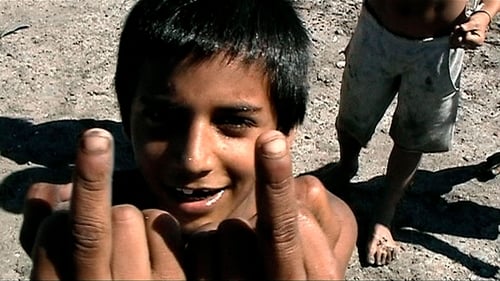
Original Music Composer
The history of the Argentine railways, from 1857 until the crisis of the current transport system. The closing of branches of the railway lines turned towns whose main source of work was the train into ghost towns. The privatization of the lines caused the dismissal of tens of thousands of workers as well as the deterioration of public service, causing in turn the increase of motor transport and the multiplication of automobile accidents.

Original Music Composer
As the third installment in an ongoing series of muckraking documentaries by Argentine filmmaker Fernando Solanas that investigate various sociological aspects of South America's second-largest nation (following 2004's Memoria del saqueo and 2005's La Dignidad de los nadies), Latent Argentina springboards from a truth little-known to most of the titular country's residents: Argentina owns more wealth and more innate natural resources than almost any nation on its continent. The possessor of a bountiful shoreline, endless acres of tillable farmland, the fourth largest metal reserves on the planet and a remarkable space program (the fourth in the world to send a human being into space), Argentina nevertheless remains a prisoner of backward and disadvantageous economical, political and social systems.

Original Music Composer
The degraded socio-economic condition of Argentina leading to the December 2001 rebellions, and its consequent social chaos analyzed by focusing on real people from Buenos Aires poorest shantytowns, crumbling hospitals, and women middle class farmers fighting multi national banks that are shamelessly appropriating their farmlands. Written by Gonz30

Original Music Composer
After the fall of the military dictatorship in 1983, successive democratic governments launched a series of reforms purporting to turn Argentina into the world's most liberal and prosperous economy. Less than twenty years later, the Argentinians have lost literally everything: major national companies have been sold well below value to foreign corporations; the proceeds of privatizations have been diverted into the pockets of corrupt officials; revised labour laws have taken away all rights from employees; in a country that is traditionally an important exporter of foodstuffs, malnutrition is widespread; millions of people are unemployed and sinking into poverty; and their savings have disappeared in a final banking collapse. The film highlights numerous political, financial, social and judicial aspects that mark out Argentina's road to ruin.

Original Music Composer
A retiree who is thrown out of the lodging where he lives with a closet, his only belonging, meets a girl from the street and will keep each other company

Original Music Composer
A black cloud brings 1600 days of rain to Buenos Aires, while traffic and pedestrians move backwards. Aging actor Max (Eduardo Pavlovsky) runs the Mirror Theater in a former fish market, but lack of funding means a possible demolition. Max is attracted to Brazilian dancer Fulo (Angela Correa), who worries about her daughter back home. Amid political corruption and police brutality, Max's elderly colleague Enrique leads a protest for unpaid old-age pensions. The pensioners succeed in their demands, only to learn from a government official that no money is available to pay them.





